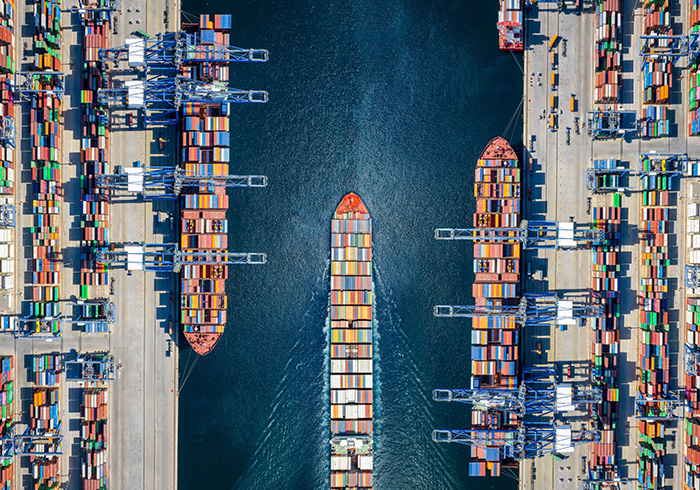Following a London court ruling on imports of copper that turned out to be blocks of concrete, legal experts believe the case could have wider implications for shipping companies that get caught up in attempted fraud.
The case relates to three purchases of copper wire by Stournaras Stylianos Monoprosopi, a scrap metal trader headquartered in Greece, in November 2019.
The goods were seemingly shipped in containers from Jebel Ali to Piraeus, with Maersk issuing bills of lading (BLs) reflecting information provided by the supplier, Dubai-based Alembery General Trd Fzc.
However, during transit, Stournaras employees noticed a discrepancy between the weights stated on the BLs and the actual weight of the containers loaded onto the vessel, calculated at the port.
When the containers arrived, it emerged they “had in fact been stuffed with worthless concrete blocks”, according to an October UK High Court judgment.
Stournaras – which had by this point paid for two of the three cargoes – initially sought to recover its losses from the supplier, and obtained a default judgment in its favour in Dubai.
But by then, the ruling says, Alembery General had “disappeared” without a trace and the default judgment could not be enforced.
Stournaras then turned to shipping and logistics company Maersk. Arguing that Maersk was aware the containers weighed far less than they should have, it alleged the carrier should have marked that discrepancy in the BLs or not issued them at all.
It also argued that cargo carriers owe a duty of care to an importer when issuing BLs, and should take reasonable steps not to issue documents if there is reasonable grounds for suspecting fraud.
The court sided with Maersk, and also allowed its counterclaim in relation to costs arising from invoices, cargo destruction and demurrage.
It found there was no evidence that Maersk should have suspected the supplier was providing fraudulent information, and that it was not under any duty to cross-check the weights provided for BL issuance with those calculated at the port.
However, the court notes that in future, if such a discrepancy was detected it “would give rise to an assumption on the part of the carrier that the proposed bill was being used as an instrument of fraud”.
As a result, the judgment says it would be reasonable to impose a duty of care upon the carrier, and that if an importer can show the carrier should have realised there was a discrepancy between declared and actual cargo weights, it “has a strong case” that the BLs should not have been issued.
The judgment notes this is a novel argument put forward by Stournaras, in part because the requirement to measure container weights only came into effect in 2016. The company had suggested that extending a duty of care would be a natural and incremental development in how existing laws are understood.
An analysis of the case by law firm Penningtons Manches Cooper says that aspect of the ruling “may have future implications for the ocean carrier’s assessment of the apparent order and condition of containerised goods”.
Because it effectively creates a new duty in tort – a non-contractual but legal requirement – it may “no longer be acceptable to simply state ‘particulars furnished by shipper’” when issuing BLs, it says.
Law firm Birketts notes that the ruling is based on market practices in 2019, when the trades occurred, and that since then more sophisticated systems have been put in place to use data relating to weights calculated at ports.
“As technology and customary practices move on, it is possible that expectations on carriers to analyse and act upon data could also increase,” it says.
“Clearly it remains in the best interests of all to be as vigilant as possible and to respond proactively when any suspicion of fraudulent activity arises.”
HFW adds in a note on the case that Maersk “did not have the requisite knowledge – but that might not have been the outcome had the fraud occurred after it changed its weight verification system”.
“Cases of fraud, particularly in relation to metals, remain disturbingly common,” it says.
“This decision suggests that the victims of fraud should consider whether there is scope for a claim against the carrier particularly where, as here, the fraudster has disappeared.”
A spokesperson for Maersk says: “In our view the judgment does not create any new duties or obligations for Maersk.”
They add the company is “pleased that the court found in favour of Maersk and gave effect to the usual exclusions and limitations applicable to our bill of lading, whilst holding that Maersk had no notice of the fraud committed by the shipper against the consignee”.
Representatives from Stournaras and Maersk did not comment when contacted by GTR.







